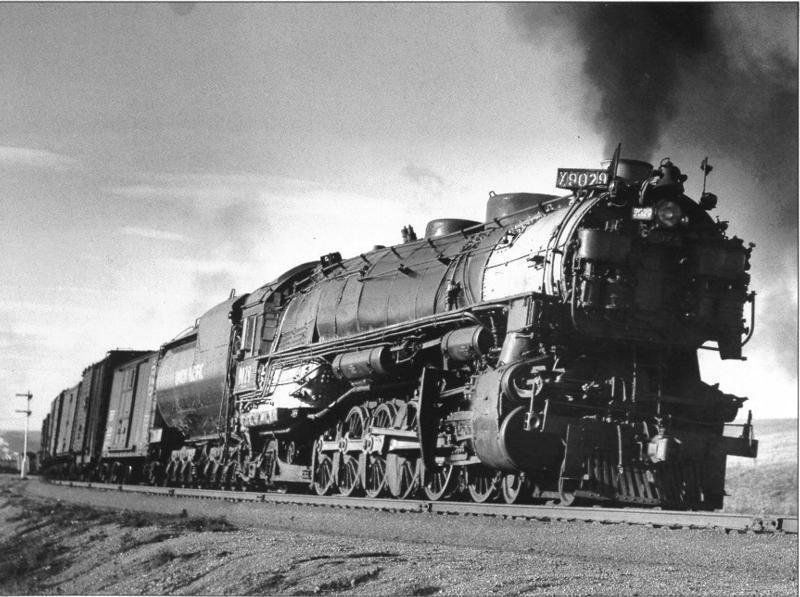South Georgia towns put names on the map
Published 9:00 am Sunday, July 16, 2017

- Railroads shaped the names and nature of many early South Georgia towns.
PART I
Ike J. Goodman was a man on the move. Goodman was a doctor, a state legislator with the Georgia General Assembly of 1888, and a developer who formed a town along the rails of Cook County.
Trending
Goodman was also an in-law. Once married, most folks have in-laws, but Goodman’s status as an in-law proved important to the naming of a town. Goodman and his brother-in-law positioned themselves as rivals.
Goodman had his little town in Cook County. His brother-in-law lived in neighboring Puddleville, which later became Adel. They reportedly competed over several things, small things, but with the coming of the locomotive to South Georgia, they competed for dominance along the railroad.
Talk about family rivalries.
They each wanted a train depot for their respective towns. A place where a train would make stops in a town. A place to refuel, to load and unload cargo, a place where passengers could visit and spend money at restaurants and stores before loading up and moving on. And who knows, some of those passengers may step off the train at the depot and make the town their home — a place to live, work and raise a family.
So, the stakes were high, and Goodman and his brother-in-law were playing for keeps.
Yet, Goodman had a plan to outmaneuver his brother-in-law. Goodman would play to the railroad’s vanity. Goodman named his Cook County town Sparks in honor of Georgia Southern & Florida Railroad President A.M. Sparks. A.M. Sparks, however, was unimpressed with having a town named for him. He did not place a depot in the community.
Trending
Undeterred, Goodman spent some of his political capital as a legislator to persuade A.M. Sparks. In the General Assembly, Goodman sponsored a bill placing a four-mile-per-hour speed limit on trains passing through the town of Sparks. Goodman’s fellow legislators passed the measure and made it law.
Fast-moving legislation to slow his trains caught the attention of A.M. Sparks. Since the trains slowed anyway, A.M. Sparks built a depot in Sparks.
Still, Goodman won a depot but lost the bet. Puddleville acquired a depot before Sparks. Goodman’s brother-in-law won the contest.
Such are the stories of how some local towns acquired their names and the importance the railroad played in developing many towns. The stories are gleaned from past articles, local lore and from interviews with area historians.
Take the Lowndes County community of Naylor.
Local lore notes it took its name from “Capt. Naylor,” who was the conductor on the first train to pass through the community.
The Stockton community reportedly acquired its name from J.N.C. Stockton, an Atlantic & Gulf Railroad employee.
The small town of Barney reportedly borrowed its name from the words stenciled on the side of an 1897 boxcar — “Barney-Smith Co.”
And the Clinch County town of Fargo is reportedly named for a 19th century railroad turnaround for a train traveling to and from Valdosta and the Suwannee River. Since the turnaround was as far as the train could go, history claims the town adopted the name Fargo.
In some cases, trains overpowered a community, changing the town’s name by a matter of attrition rather than communal decision.
Take the one-time Berrien County town of McMillan, which was reportedly named for two brothers who contributed land for developing the town and the railroad. Residents may have wanted to call the community McMillan, but railroad workers called it the Alapaha Station because of the stop’s proximity to the Alapaha River. In the passing years, residents dropped McMillan and the word “station” and the town became Alapaha.
Other communities didn’t necessarily feel inspired to name their region for the railroad, but they still felt compelled to find a name because of the trains. Railroaders dubbed an unnamed Madison County, Fla., community as “Station No. 5” because it was the fifth stop on a rail running from Tallahassee, Fla. Not caring to be known as a number, the community reportedly decided to follow a woman’s suggestion that the town be called Greenville after her native Greenville, S.C. Station No. 5 became Greenville, Fla.
Trains didn’t just move people to name or re-name area towns. In one dramatic case, the railroad prompted an entire town to move.
If not for trains, newspaper subscribers may be reading The Troupville Daily Times this morning.
Prior to 1860, Troupville was the government seat of Lowndes County. Originally Lowndesville, Troupville (in some historic records spelled Troupeville) honored Georgia Gov. George M. Troup.
Troupville prepared itself for the coming of the railroads. But the Savannah, Florida & Western Railroad ignored Troupville’s preparations. The railroad would pass through an area four miles south of Troupeville.
The town followed the train. That area four miles south of Troupville became Valdosta.





